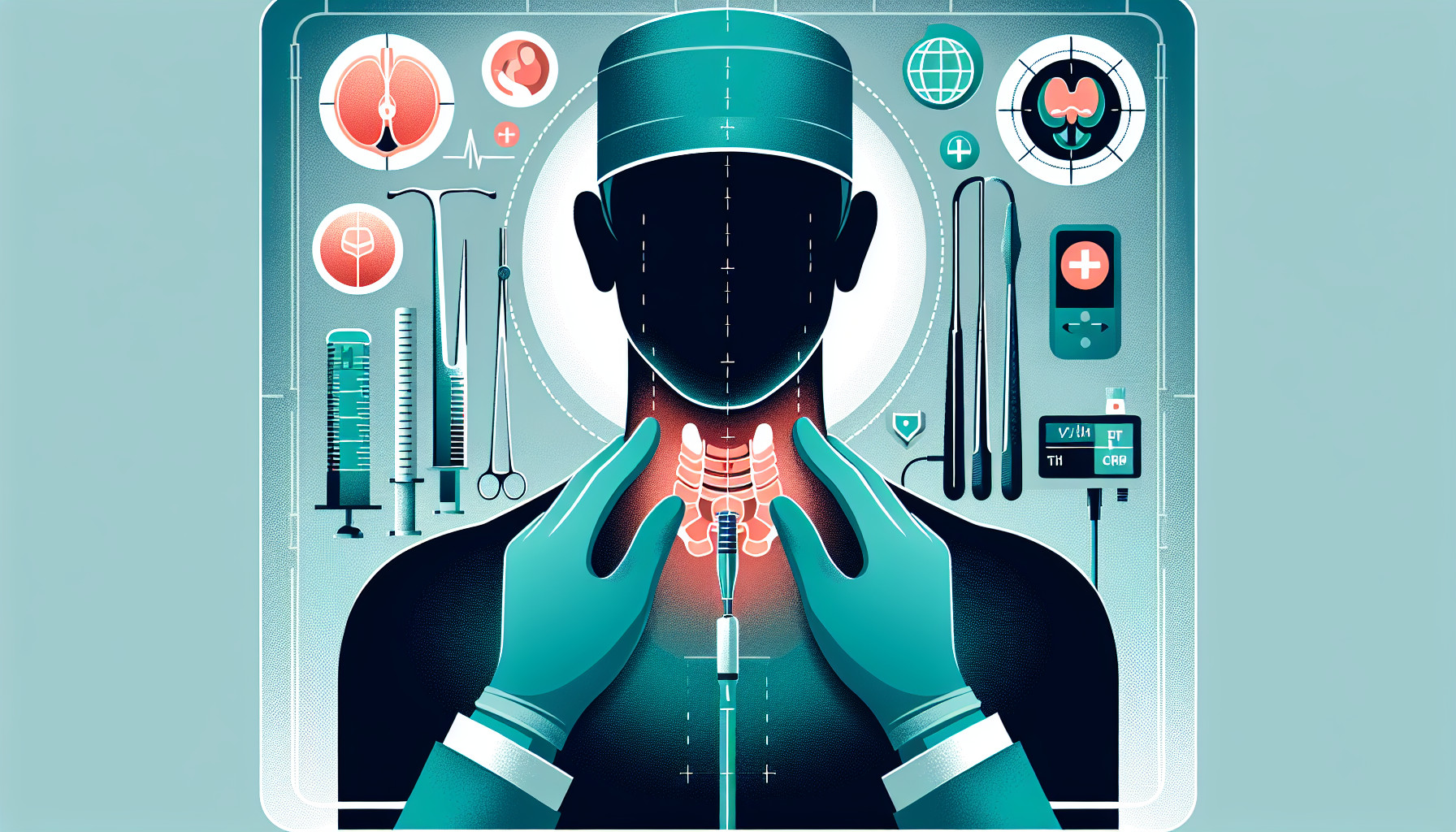Our Summary
This research paper looks at the treatment of a condition called tertiary hyperparathyroidism (HPT), which can often have delays between when it’s diagnosed and when surgery is recommended. The researchers wanted to see if patients with this type of HPT have similar success and complication rates after surgery as those with primary HPT.
Between 2014 and 2019, they looked at 9030 patients who had undergone parathyroidectomy, a type of surgery used to treat HPT, and found that 334 (3.7%) of these patients had tertiary HPT. After the surgery, 93.7% of the patients with tertiary HPT were cured, despite there being a higher chance of the disease persisting compared to primary HPT.
While complications were generally low for both groups, those with tertiary HPT were more likely to go to the emergency department, be readmitted to the hospital, or develop a blood clot (hematoma). However, other complications, including death, voice box dysfunction, and surgical site infections, were equally low for both groups.
The researchers concluded that even though the chances of the disease persisting and certain complications occurring were higher in patients with tertiary HPT, these rates were still low overall. Therefore, doctors should not hesitate to recommend surgery early for the treatment of tertiary HPT.
FAQs
- What is the success rate of parathyroidectomy for patients with tertiary HPT?
- Are there higher complication rates for patients with tertiary HPT compared to those with primary HPT after undergoing parathyroidectomy?
- Should doctors recommend surgery early for the treatment of tertiary HPT, despite the chances of the disease persisting and certain complications?
Doctor’s Tip
A helpful tip a doctor might tell a patient about parathyroidectomy is to follow post-operative care instructions carefully, including taking prescribed medications, attending follow-up appointments, and monitoring for any signs of complications such as bleeding, infection, or changes in voice. It’s important to communicate any concerns or symptoms to your healthcare provider promptly.
Suitable For
Patients with tertiary hyperparathyroidism (HPT) are typically recommended parathyroidectomy, as this study found that the majority of these patients were successfully cured after surgery. Despite a higher chance of the disease persisting compared to primary HPT, the rates of complications were still low overall. It is important for doctors to consider recommending surgery early for the treatment of tertiary HPT to improve patient outcomes.
Timeline
Before parathyroidectomy, a patient may experience symptoms such as fatigue, bone pain, muscle weakness, and kidney stones due to high levels of parathyroid hormone (PTH) in the blood. They may also undergo blood tests, imaging studies, and possibly a biopsy to confirm the diagnosis of HPT.
After undergoing parathyroidectomy, the patient may experience improvements in their symptoms, such as decreased fatigue, improved bone health, and reduced risk of kidney stones. They will need to follow up with their healthcare provider for monitoring of their calcium levels and PTH levels to ensure that the surgery was successful in correcting the underlying issue.
Overall, the success rates of parathyroidectomy in treating HPT are high, with the majority of patients being cured of the condition. While there may be a slightly higher risk of complications in patients with tertiary HPT compared to primary HPT, the overall rates of complications are still low. Therefore, early surgical intervention is recommended for patients with tertiary HPT to improve their quality of life and reduce the risk of long-term complications.
What to Ask Your Doctor
Some questions a patient should ask their doctor about parathyroidectomy include:
- What is the reason for recommending a parathyroidectomy for my condition?
- What are the potential risks and complications associated with the surgery?
- How long is the recovery period after the surgery?
- Will I need to take any medications or make any lifestyle changes after the surgery?
- What is the success rate of this surgery for patients with my specific type of hyperparathyroidism?
- How experienced are you in performing parathyroidectomies?
- Are there any alternative treatments to consider before undergoing surgery?
- How often will I need to follow up with you after the surgery?
- What symptoms should I watch out for that may indicate a complication post-surgery?
- Can you explain the long-term outlook for my condition after the surgery?
Reference
Authors: Patel A, Lee CY, Sloan DA, Randle RW. Journal: J Surg Res. 2021 Feb;258:430-434. doi: 10.1016/j.jss.2020.08.079. Epub 2020 Oct 9. PMID: 33046234
